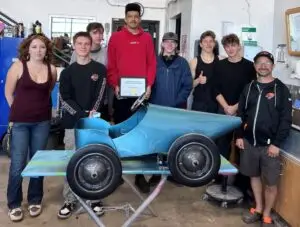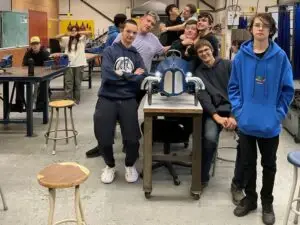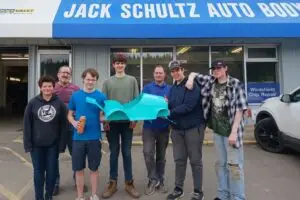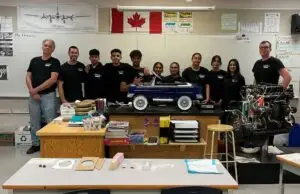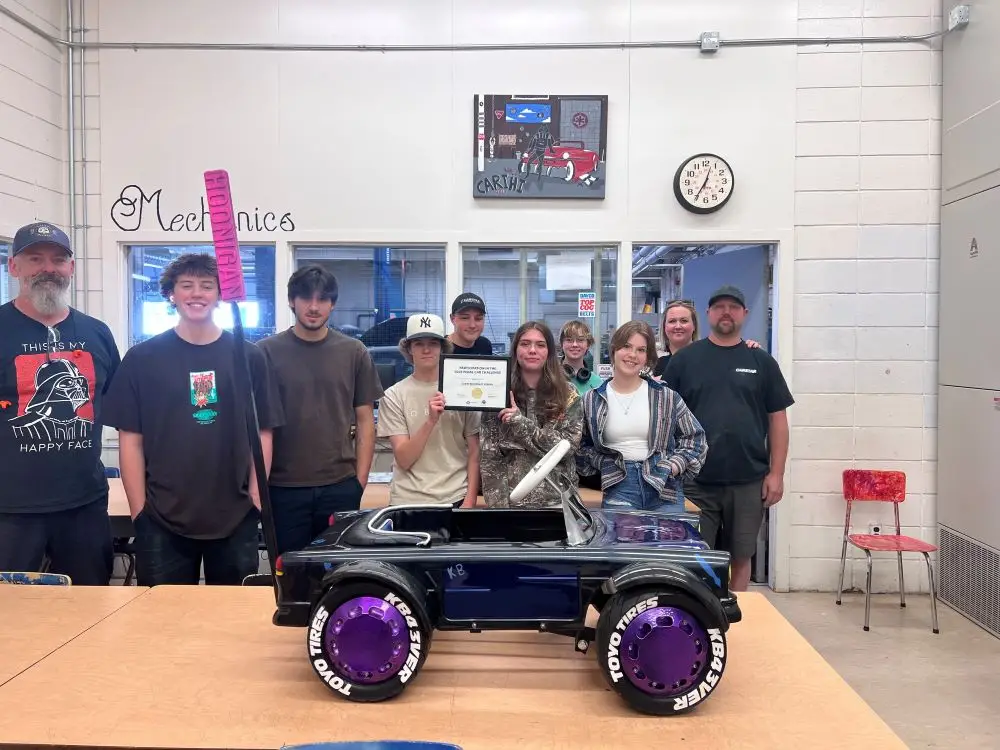
As the program goes national, youth, communities, and the industry benefit.
The Pedal Car Challenge has closed off another successful year with seven B.C. schools participating in the program in 2023. The program offers students the opportunity to design, modify, and paint a pedal car (human-powered toy car). The project provides them with an exciting introduction to the automotive industry in B.C. while opening a dialogue about stimulating and fun career opportunities.
With the help of industry partners BASF, Color Compass, Craftsman Collison, and Carstar Collision, the Pedal Car Challenge introduces kids to career opportunities that, in some cases, they would never have heard of otherwise. By the end of the challenge, the students were extremely excited to show off their completed pedal cars and tell us what they had learned. It is the excitement on their faces that makes us realize just how big of an impact this project has on the kids who participate. The project shows students the possibility of a successful career in an industry that they might never have thought to enter had they not had the experience working on a pedal car.
So, the big question is: What’s to come for this year? Well, a title recognition for one. We are going into the third year of the Pedal Car Challenge, and we can confidently say that we have a continuous program. That being said, we can incorporate the term “annual” into the program’s name, as the program has become a staple for creating industry awareness throughout B.C. The program has generated interest across the province, from participating schools in remote communities to government and industry partners. Every year awareness of the program grows, as does support.
Another aspect we can look forward to seeing during this year’s Pedal Car Challenge is the commitment to bringing the program to the province’s most remote areas. This year, we will have schools from as far north as Haida Gwaii and as far east as Sparwood participate in the challenge. Providing remote communities with an opportunity such as the Pedal Car Challenge is essential because it helps to reach kids who may never be exposed to the industry in any other way, shape, or form. It is even possible that exposure such as this could help sustain remote communities by inspiring someone from the community to train in an automotive trade who will then service the community.
A final aspect we can look forward to this year is the potential expansion of the program to other provinces. Not only will this create national awareness of the program, but it will also create a stronger voice for the industry across the country, given our efforts in B.C. will be replicated and send the same message to governments: the automotive sector needs a young, skilled workforce to ensure its survival. This year, we provided the Automotive Trades Association of Manitoba (ATA) with a pedal car kit to introduce the program to Manitoba. The ATA will then partner with a local high school to assist them with completing a pedal car with support from industry partners.
In conclusion, we hope this year’s program will bring more awareness of the industry and its career opportunities. We hope kids will see other ways to be successful and contribute to their community besides attending university and getting a conventional job. We hope to break down the negative stereotypes often associated with the industry through interactive learning and informative means. When students step into a live shop, these negative stereotypes are broken down almost instantly, giving them a more possible perception of the industry.

